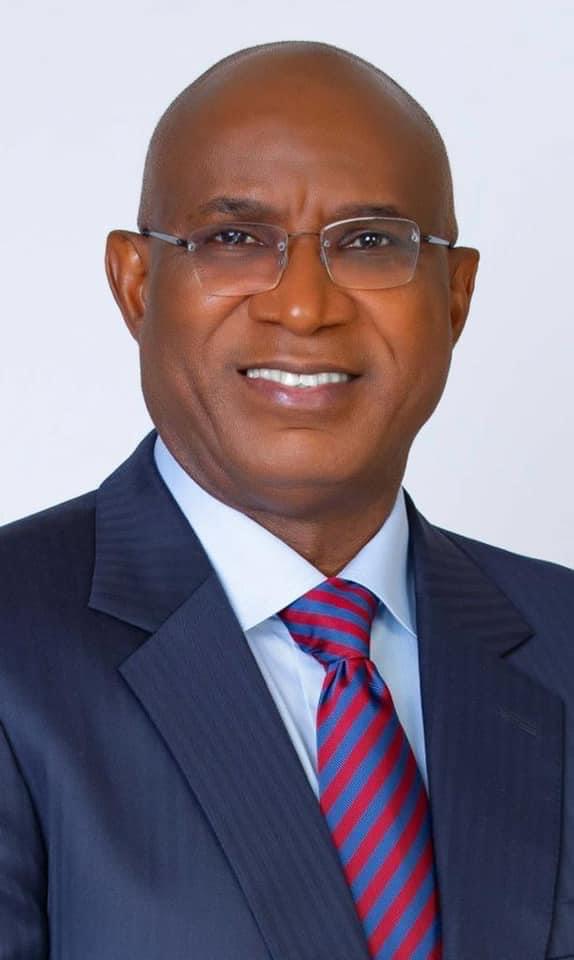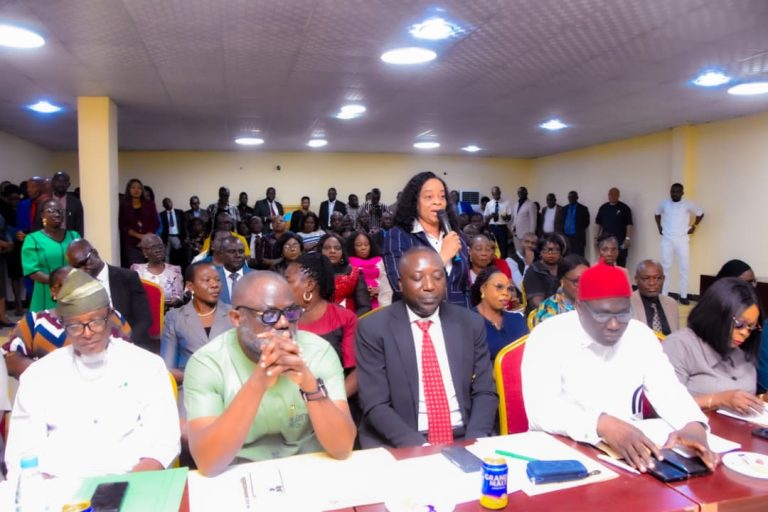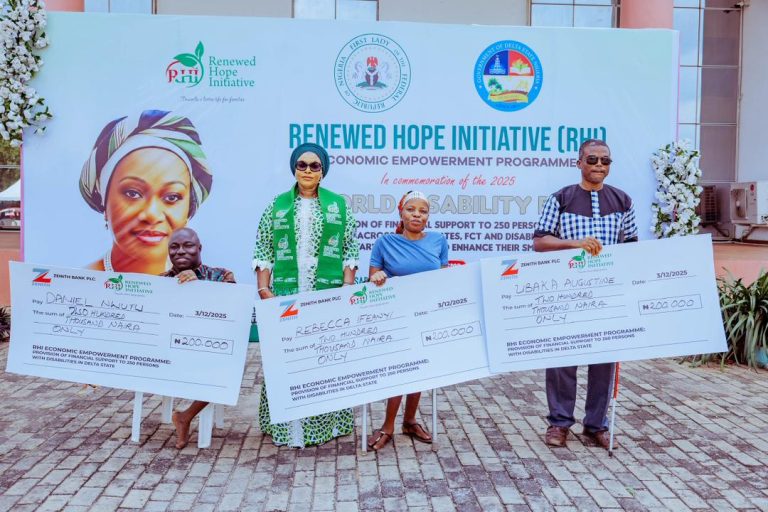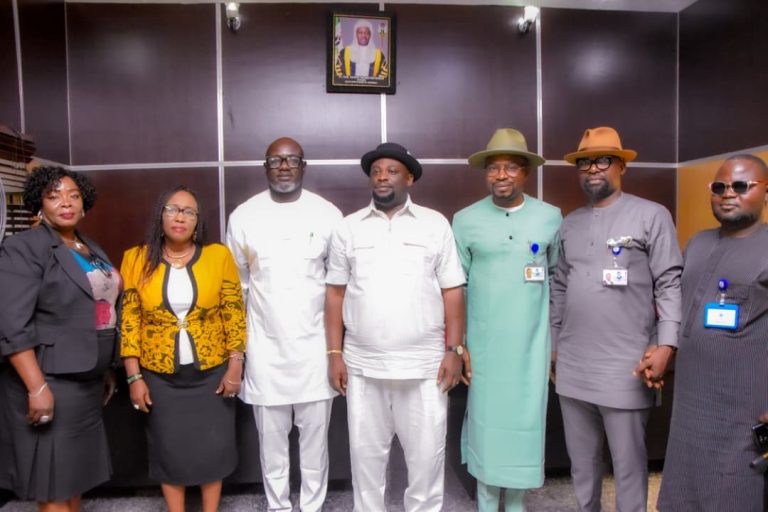
This issue of corruption is one that has eaten deep into the root of our country. It is tragic to think that on transparency internationals 2022 corruption perceptions index, Nigeria scored 24 on a scale of 0-100 . When ranked by score, Nigeria ranked 150th among 180 countries in the index where the country ranked last is perceived to have the most corrupt public sector.
The word corruption comes from Latin ‘com’ meaning with, together and ‘rumpere’ meaning to break. Corruption has been defined to mean dishonest or fraudulent conduct by those in power, typically involving bribery. Engaging in corruption can break one’s trustworthiness and good reputation with others. In addition, according to the Oxford dictionary, corruption means dishonest or illegal behaviour, especially of people in authority.
One might begin to wonder about what activities does corruption evolve around. However, corruption involves many activities which includes; favouritism, nepotism, and clientelism.To some extent, we would like to think that these above activities are the sole examples of corruption. When someone considers how close he/she is with a particular person either by being a favourite person,a person from the same tribe a person who is a client,no doubt that favouritism, nepotism and clientelism .
Another example is bribery. Bribery means am act of taking or receiving bribe others include embezzlement,theft and fraud, graft, extortion and blackmail, influence peddling, networking,abuse of discretion, trading in influence, patronagel gombeenism and parochialism, electoral fraud, kickbacks,forgery etc.
Corruption has eaten so deep that when you find someone who is not corrupt it becomes quite surprising. What then are the causes of corruption in Nigeria you must ask. They include: poverty. Poverty is the fear of every man and to keep this away, corruption is grabbed when opportunity arises as long as the perpetrator is ready to pay. Others causes include, weak government institutions,greed, poor education and illiteracy, tribalism, higher levels market and political monopolization, disenfranchisement, low levels of democracy, weak participation and low political transparency, higher levels of bureaucracy and inefficient administrative structures amongst others.
Akpata stated that “the results of the study shows that corruption in Nigeria could cost up to 37% of Gross Domestic Products (GDP) by 2030 if it’s not dealt with immediately. This cost is equated to around $1000 per person in 2014 and nearly $2000 per person in 2030.
The boost in average income that we estimate, given the current per capital income, can significantly improve lives of many in Nigeria”. Corruption discourages investments,limits economic growth and alters the composition of government spending. It erodes the trust we have in public sector to act in our best interests. It also wastes taxes and rates meant for important community projects. This results in poor quality services or infrastructure or projects getting off the ground.
Corruption declines the quality in the education sector. It affects the learning and assessment outcomes as well as increase in the rate of poverty, inequality and underdevelopment. Corruption reduces access to education.
After the above discussion on the definition, examples,causes, and effects of corruption, it is of great necessity to discuss the ways of reducing corruption in in Nigeria.
They include; conducting due diligence on all third parties, watching out for bribery and corruption’s redflags, ensuring gifts and hospitality meet criterias, embedding the ABAC principle in corporate culture, getting the tone right from the top, updating anti-bribery and anti-corruption policies, ensuring public sector employees act in the public interest, stopping dishonest practices, keeping the public sector honest, transparent and accountable, exposing corrupt activities and risks, etc.
A former chairman of the Economic and Financial Crimes Commission Mr. Ribadu discussed 12 ways Nigeria can tackle endemic corruption.
They are:
. Leadership is essential. Leadership, at all levels should be beyond reproach to provide the needed examples. There should also be the will to apply the sanctions. He stated that lack of will by the political leadership to persecute the war against corruption takes us to nowhere.
. Honesty has to be lifted to the position of a prized and rewarding national value. Criminals should not be celebrated as heroes on account of their wealth.
. All government expenditures should be budgeted. Extra budgetary spending should be criminalised and security votes should be completely phased out.
. Transparency should be the key word in all government businesses. Lack of transparency is the first thing that sows the seed of corruption.
. Smart technology should be deployed in procurement process to give room for transparent and accountable system of doing business.
. Cash transactions should be completely abolished or minimizer as much as possible. With electronic movements of cash everything could be within watch and can be tracked.
. We should weed out corruption in our electoral system.
. The civil society and the media should be encouraged to be very vigilant and honest watchdogs of all systems. Whistler blowers must be encouraged and protected.
. Red tapes and administrative bottle necks in the bureaucracy should be tackled. Reducing unnecessary process will cut down tendencies of corruption as people need not to bypass established rules to accomplish any task.
. Subsidies should be phased out by the government to stop all the haemorrhage and abuse. As a discretionary intervention, subsidies on whatever service or product is very much prone to corruption by both the beneficiaries and those managing it, as we have seen with petroleum subsidy in this country.
. Education is important to the process citizens need to be sufficiently educated to be able to sieve right from the wrongs and demand for what is right.
. Lastly, at the root of achieving all these is a resolve by all Nigerians individually and collectively to not compromise. We must resolve to shun corruption entirely by taking a stand that ” I will not take bribe again” no matter the consequences. Time will come when there will be no takers!
To sum it up, corruption is the biggest evil of any society because it weighs down prosperity and good tidings of the society. All necessary steps must be taken to eradicate this evil. Not only the ones with power but at times even the weaker section of the society tend to become a culprit in this
Written by :
OHWOVORIOLE OGHENEVOVWERO RITA.
Delta State University
Law faculty







